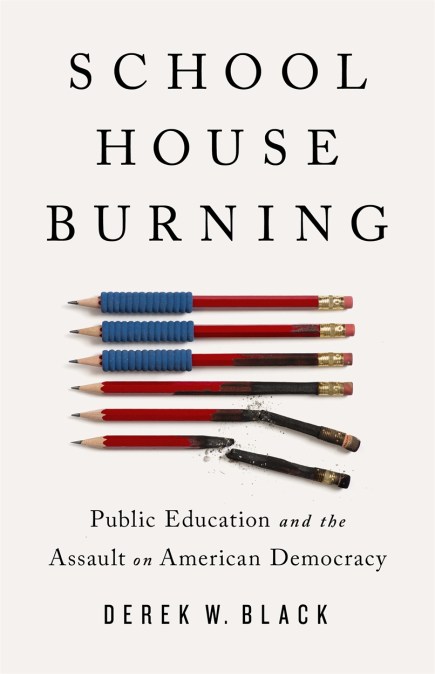We are in the midst of a full-scale attack on our nation’s commitment to public education. From funding, to vouchers, to charter schools, public education policy has become a political football, rather than a means of fulfilling the most basic obligation of government to its citizens.
As Derek W. Black vividly illustrates, this assault threatens not just public education, but democracy itself. Black offers both an illuminating history of our nation’s establishment of a constitutional right to education, and a trenchant analysis of how such a right is being undermined today. He looks at education history with a wide view, describing both periods when our democracy has been strengthened-when the commitment to public education has been strongest-and weakened, when such a commitment has been lacking. And today, such a commitment is sorely lacking.
Schoolhouse Burning shows what is at stake: not just the right to public education as guaranteed by the constitution, but an erosion of democratic norms.
As Derek W. Black vividly illustrates, this assault threatens not just public education, but democracy itself. Black offers both an illuminating history of our nation’s establishment of a constitutional right to education, and a trenchant analysis of how such a right is being undermined today. He looks at education history with a wide view, describing both periods when our democracy has been strengthened-when the commitment to public education has been strongest-and weakened, when such a commitment has been lacking. And today, such a commitment is sorely lacking.
Schoolhouse Burning shows what is at stake: not just the right to public education as guaranteed by the constitution, but an erosion of democratic norms.
Newsletter Signup
By clicking ‘Sign Up,’ I acknowledge that I have read and agree to Hachette Book Group’s Privacy Policy and Terms of Use

